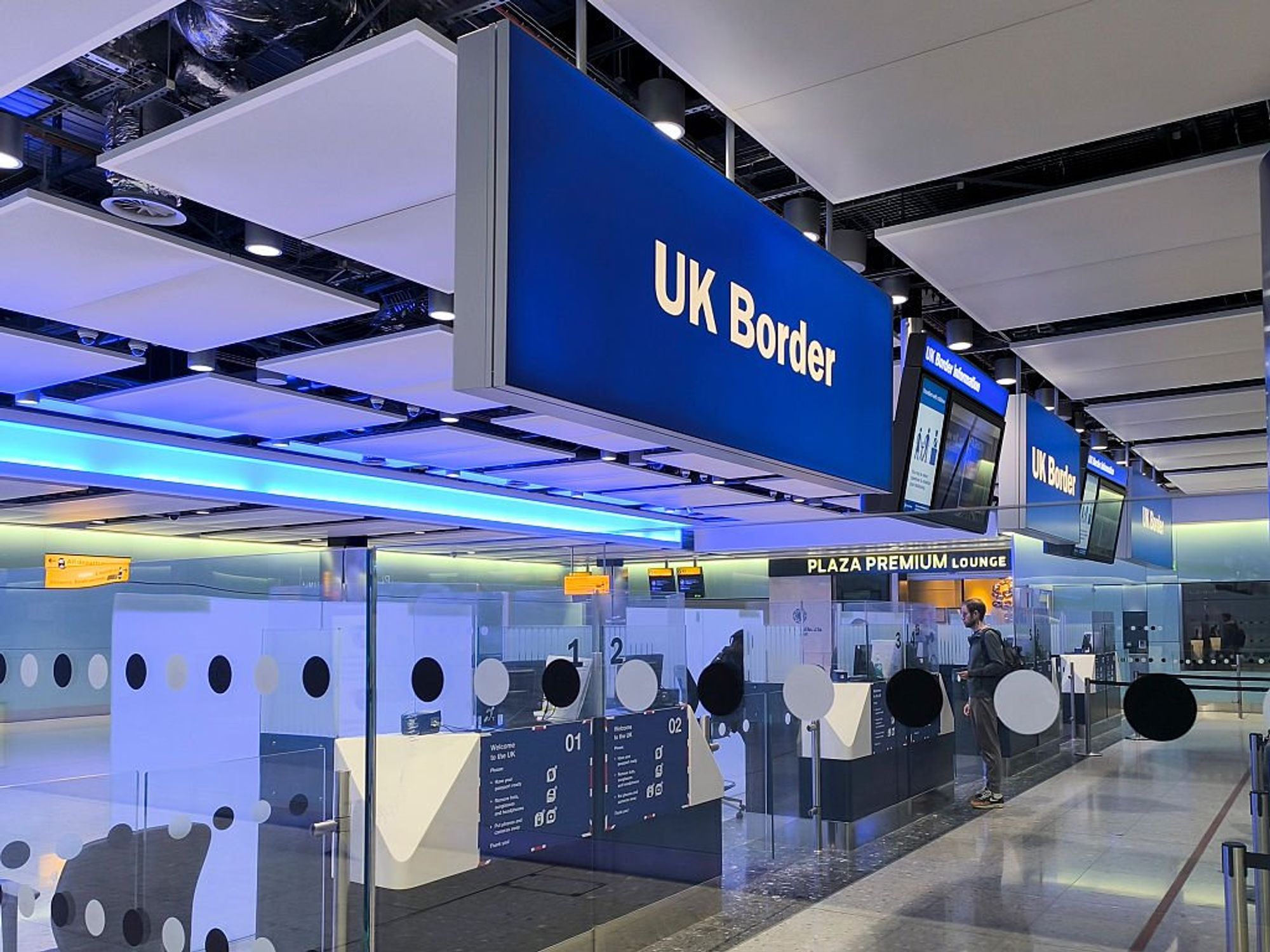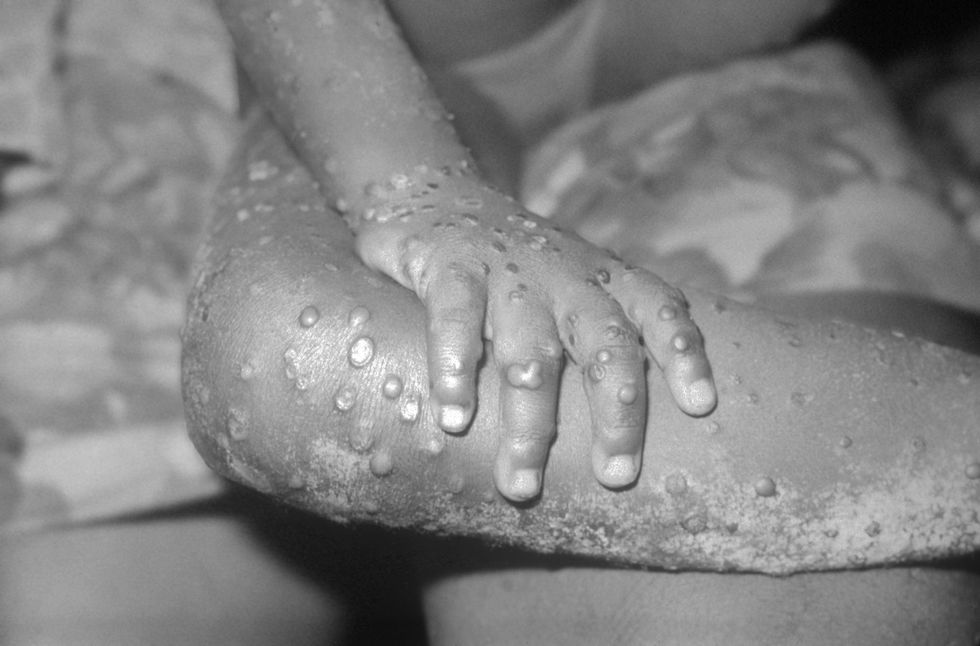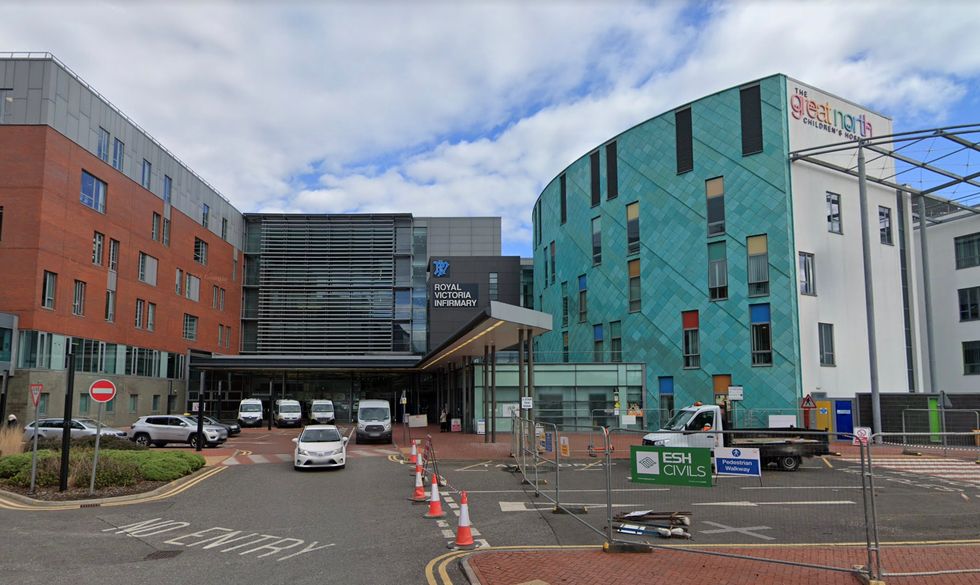Monkeypox outbreak likely to have been 'spread in sexual networks', according to officials
There have so far been seven recorded cases of monkeypox in the UK
Don't Miss
Most Read
Latest
The outbreak of monkeypox in the UK is likely to be have been "spread in sexual networks" according to Mateo Prochazka, an infectious disease epidemiologist at the UK Health Security Agency (UKHSA).
Four more cases of monkeypox have been identified in the UK, bringing the total number of confirmed cases of the disease to seven, health bosses have said.
Three of the cases have been detected in London, and one in the North East of England, the UK Health Security Agency (UKHSA) announced yesterday.
The health agency is working to find links between the latest four cases, which all appear to have been infected in the capital.
Common contacts have been established between two of the four individuals who have caught the virus.
Close-up of monkeypox lesions on the arm and leg of a female child
Wikicommons
Those needing care are being treated in specialist infectious disease units at the Royal Free Hospital, Royal Victoria Infirmary in Newcastle upon Tyne and Guy’s and St Thomas’.
These cases do not, however, seem to be connected to the previous confirmed cases of monkeypox in the UK which were announced on May 14, nor the first UK case announced on May 7, which has led to concerns that there has been transmission of the virus in the community.
The first case was a person who had recently travelled to Nigeria, which is where they were believed to have contracted the infection, before travelling to the UK.
UKHSA added that all four of the most recent cases self-identify as gay, bisexual or other men who have sex with men.
The health body is therefore asking these groups “to be alert” to possible symptoms, which include rashes or lesions on any part of their body, especially their genitalia, and to contact a sexual health service if they have concerns.
Royal Victoria Infirmary, where those needing care for monkeypox are being treated
Google
Due to the recent rise in case numbers and uncertainties around how some of the individuals acquired their infection, UKHSA has said it is working closely with NHS partners to establish whether there have been any more cases in recent weeks, and international partners to examine whether other countries have seen a similar rise in monkeypox.
The health agency emphasises that the virus does not spread easily between people and the risk to the UK population is low.
Dr Susan Hopkins, chief medical adviser at the UKHSA said: “This is rare and unusual.
“UKHSA is rapidly investigating the source of these infections because the evidence suggests that there may be transmission of the monkeypox virus in the community, spread by close contact.
“We are particularly urging men who are gay and bisexual to be aware of any unusual rashes or lesions and to contact a sexual health service without delay.
“We are contacting any potential close contacts of the cases to provide health information and advice.”
The rash, which can develop as part of the virus, changes and goes through different stages before finally forming a scab, which later falls off.
The health agency also said that initial symptoms of monkeypox include fever, headache, muscle aches, backache, swollen lymph nodes, chills and exhaustion.
Some scientists have publicly doubted the notion that monkeypox has developed an ability to be sexually transmitted.
Professor Keith Neal, an epidemiologist at the University of Nottingham, said: "It may not be actual transmitted by sexual intercourse rather than the close contact associated with sexual intercourse."
"Further work looking at whether the virus is found in semen is required to say truly sexually transmitted.”
"I would urge some caution at this stage before concluding that monkeypox has morphed into a Sexually Transmitted Infection (STI)", said Professor Francois Balloux, director of UCL Genetics Institute, as reported in The Independent.
"Monkeypox is not particularly transmissible and the number of cases to date where the route of transmission is known remains relatively small."
A number of the patients ill with monkeypox, which is caused by a pox virus, are receiving medical care at specialist infectious disease units at the Royal Victoria Infirmary in Newcastle upon Tyne, and the Royal Free Hospital and Guy’s and St Thomas’s, in London.
None of the newly infected individuals have travelled to a country where monkeypox, which can kill up to 10 per cent of people it infects, is endemic, UKHSA said.













